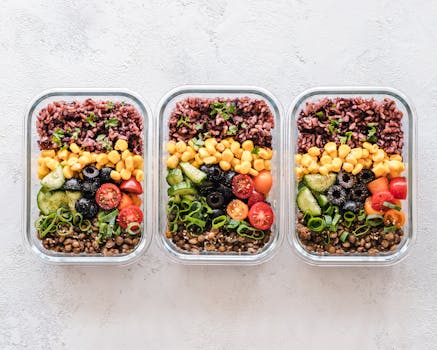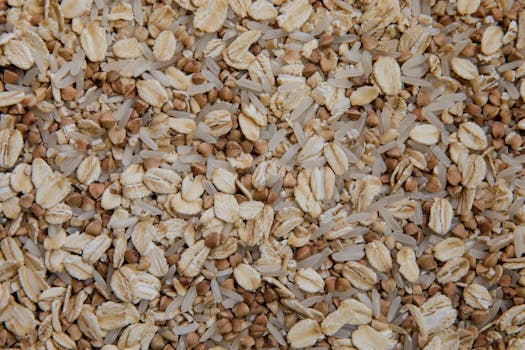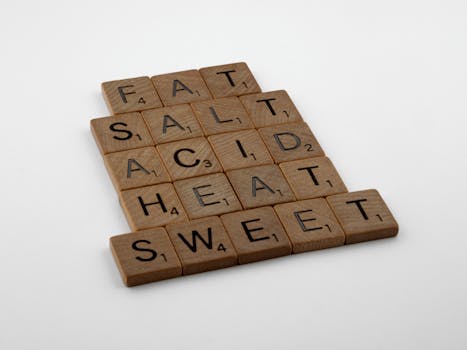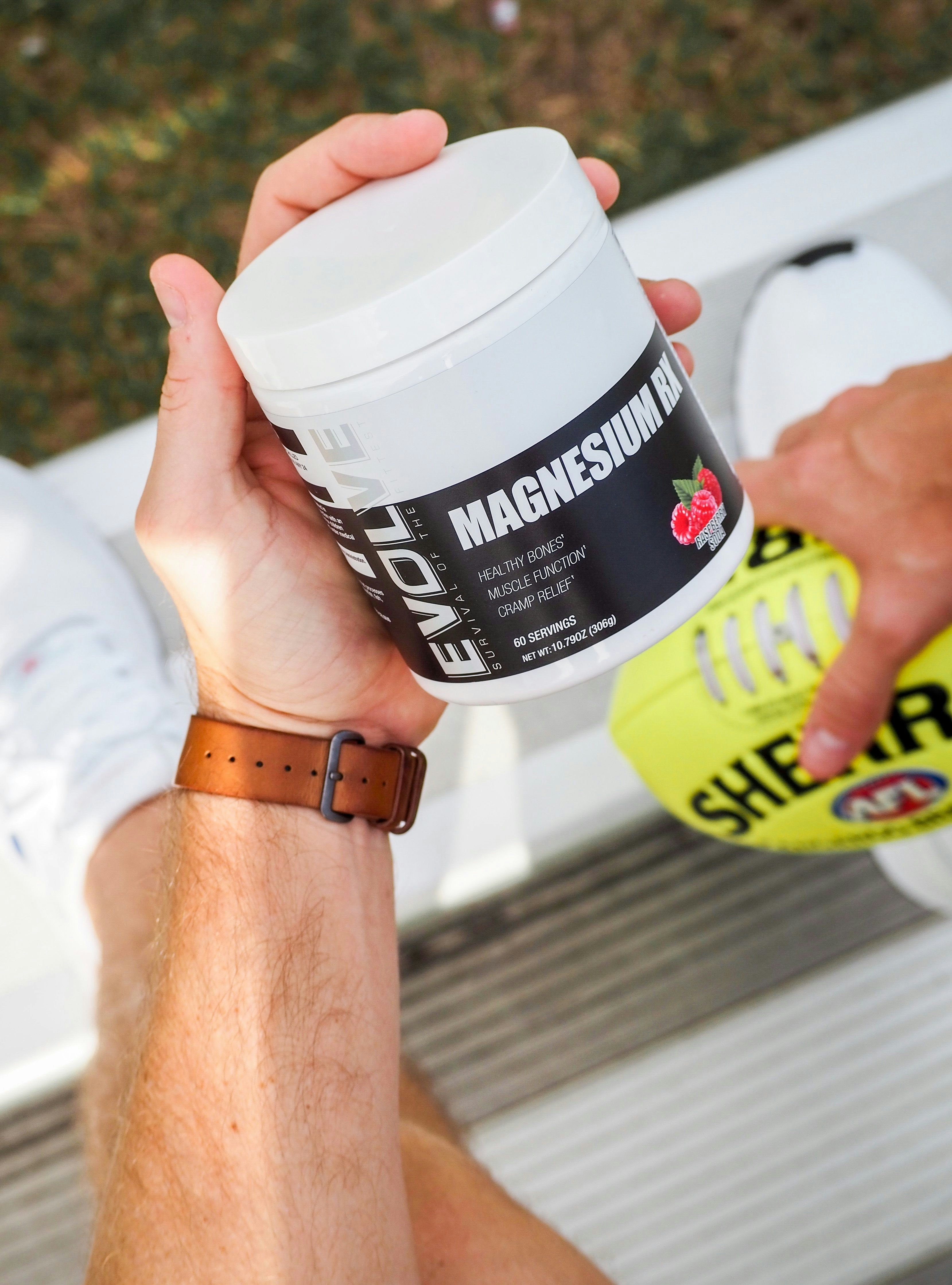Bulking Diet: The Ultimate Guide for Muscle Growth
Nov 12, 2024
If you're serious about building muscle and achieving a more muscular physique, a well-designed bulking diet is essential. Bulking is the process of intentionally consuming a calorie surplus to promote muscle growth and weight gain. However, it's not just about eating more; it's about eating the right foods in the right quantities to fuel your body's growth and recovery.
Understanding the Bulking Diet
A bulking diet is a strategic approach to nutrition that aims to provide your body with the necessary nutrients and calorie surplus to support muscle growth. It typically involves consuming more calories than your body burns, with a focus on protein, carbohydrates, and healthy fats.
The Importance of Calorie Surplus
To build muscle, your body needs to be in a calorie surplus, meaning you consume more calories than you burn. This surplus provides the energy and building blocks necessary for muscle growth. However, it's crucial to strike the right balance; too much of a surplus can lead to excessive fat gain, while too little may hinder muscle growth.
Macronutrient Breakdown
The macronutrient breakdown in a bulking diet typically consists of the following:
Protein
Protein is the building block of muscle tissue. Aim for 0.7-1 gram of protein per pound of body weight (1.6-2.2 grams per kilogram) to support muscle growth and repair. Good sources of protein include lean meats, fish, eggs, dairy products, and plant-based options like beans, lentils, and soy.
Carbohydrates
Carbohydrates are the primary fuel source for your body and are essential for providing energy during intense workouts. Consume complex carbohydrates such as whole grains, fruits, and vegetables, as they provide fiber, vitamins, and minerals. Aim for 2-3 grams of carbohydrates per pound of body weight (4.4-6.6 grams per kilogram).
Healthy Fats
Fats are essential for hormone production, nutrient absorption, and overall health. Include healthy fats like avocados, nuts, seeds, and fatty fish in your diet. Aim for 0.3-0.5 grams of fat per pound of body weight (0.7-1.1 grams per kilogram).

Creating a Bulking Diet Plan
Calculating Your Calorie Needs
To determine your calorie needs for bulking, you'll need to calculate your Total Daily Energy Expenditure (TDEE). This takes into account your Basal Metabolic Rate (BMR), which is the number of calories your body burns at rest, as well as your activity level.
There are several online calculators and formulas available to estimate your TDEE. Once you have your TDEE, add a calorie surplus of 300-500 calories per day to promote muscle growth.
Meal Planning and Timing
Proper meal planning and timing are crucial for maximizing muscle growth and recovery. Here are some tips:
Eat every 3-4 hours to maintain a steady supply of nutrients.
Consume a protein-rich meal or snack within 30 minutes after your workout to kickstart the muscle recovery process.
Incorporate nutrient-dense foods like lean proteins, complex carbohydrates, fruits, and vegetables into your meals.
Stay hydrated by drinking plenty of water throughout the day.
Tracking Your Progress
Regularly tracking your progress is essential to ensure that your bulking diet is effective. Here are some methods to consider:
Take progress photos and measurements to monitor changes in your body composition.
Weigh yourself consistently, ideally at the same time each day, to track weight changes.
Keep a food journal to ensure you're hitting your calorie and macronutrient targets.
Assess your strength and performance in the gym to gauge muscle growth.

Overcoming Challenges and Staying Motivated
Managing Hunger and Cravings
Increasing your calorie intake can lead to increased hunger and cravings, especially in the initial stages of your bulking diet. Here are some strategies to help manage these challenges:
Incorporate high-fiber foods like fruits, vegetables, and whole grains to promote feelings of fullness.
Stay hydrated by drinking plenty of water throughout the day.
Plan your meals and snacks in advance to avoid impulsive or unhealthy food choices.
Allow for occasional treats or cheat meals to satisfy cravings in a controlled manner.
Avoiding Excessive Fat Gain
One of the biggest concerns with a bulking diet is the potential for excessive fat gain. To minimize this risk, consider the following tips:
Aim for a moderate calorie surplus of 300-500 calories per day.
Prioritize nutrient-dense, whole foods over processed or high-calorie options.
Incorporate regular cardiovascular exercise to help burn excess calories.
Adjust your calorie intake and macronutrient ratios as needed based on your progress.
Staying Motivated and Consistent
Building muscle and achieving your fitness goals through a bulking diet requires consistency and dedication. Here are some strategies to help you stay motivated:
Set realistic and achievable goals for yourself.
Track your progress and celebrate small victories along the way.
Find a workout partner or join a fitness community for support and accountability.
Experiment with new recipes and meal ideas to keep your diet interesting and enjoyable.
Incorporating Getlila's AI Personal Training Solutions
While a well-designed bulking diet is crucial for muscle growth, it's equally important to have an effective training program in place. Getlila's AI personal training solutions offer a unique and personalized approach to help you achieve your fitness goals.
Our AI-powered platform analyzes your individual needs, preferences, and progress to create customized workout plans tailored to your specific goals. Whether you're looking to build muscle, increase strength, or improve overall fitness, Getlila's AI personal trainers can guide you every step of the way.
By combining a strategic bulking diet with Getlila's cutting-edge AI personal training solutions, you'll have the tools and support you need to maximize your muscle growth and achieve the physique you've always desired.

Conclusion
A successful bulking diet is a crucial component of any muscle-building journey. By following the principles outlined in this guide, you'll be well-equipped to create a sustainable and effective bulking diet plan that supports your fitness goals. Remember to focus on nutrient-dense whole foods, track your progress, and stay consistent with your efforts. With dedication and perseverance, you can unlock your full potential and achieve the muscular physique you've always dreamed of. Getlila's AI personal training solutions can be the perfect complement to your bulking diet, providing personalized guidance and support to help you reach new heights in your fitness journey.
Achieving a muscular physique requires a combination of a well-designed bulking diet and an effective training program. By following the principles outlined in this guide and incorporating Getlila's AI personal training solutions, you'll be on the path to unlocking your full potential and reaching your fitness goals.
Meal preparation is a crucial aspect of a successful bulking diet. By planning and preparing nutrient-dense meals in advance, you'll ensure that you have a steady supply of the right foods to fuel your muscle growth and recovery.
While a bulking diet provides the necessary nutrients for muscle growth, it's equally important to have an effective training program in place. Getlila's AI personal training solutions can help you design customized workout plans tailored to your specific goals, ensuring that you're maximizing your efforts in the gym.
Ready to Simplify Weight Loss?
Download the Lila app or visit getlila.com to start your journey. Experience the power of an AI-driven approach designed to adapt to your changing body and unique needs. Embrace holistic weight loss with Lila—because you deserve to feel strong, confident, and truly yourself again.
Disclaimer: This article is for informational purposes only and does not substitute professional medical advice. Consult a healthcare provider for personalized recommendations.
You should not have to do it all on your own











